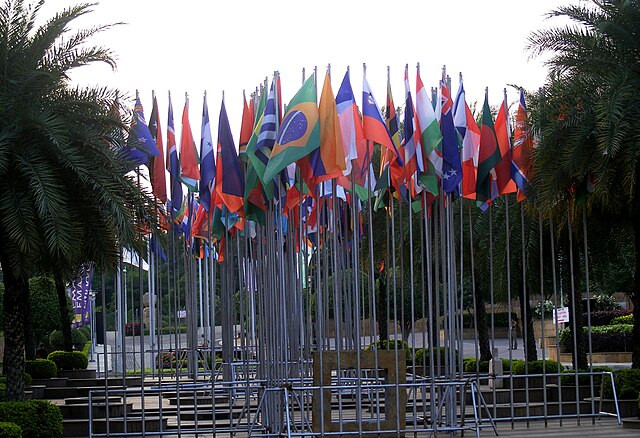On the morning of December 12, local time, the 28th Conference of the Parties (COP28) to the United Nations Framework Convention on Climate Change entered overtime as negotiators awaited the release of a new draft agreement.
Majid Al Suwaidi, the COP28 Executive Secretary, reported on the latest negotiation developments on the evening of December 12. He noted that the Presidency had gained a clear understanding of the red lines of various countries by releasing the first draft of the agreement and carefully considering feedback. The upcoming new draft agreement is expected to fully reflect the feedback provided by the parties.
The first draft of the agreement, released the previous evening, sparked controversy and was opposed by the Umbrella Group, who labeled it as a "death certificate for small island nations." Chris Bowen, Australia's Minister for Climate Change, representing the Umbrella Group, declared their refusal to sign the first draft.
The Umbrella Group, formed after the adoption of the Kyoto Protocol in 1997, consists of non-European Union developed countries like Australia, Canada, Iceland, Israel, Japan, the United States, and the United Kingdom, which joined in 2023. The group typically adopts a unified stance on climate issues.
One of the contentious points of the first draft was its complete omission of phasing out fossil fuels. Instead, it called for a just, orderly, and equitable reduction in the consumption and production of fossil fuels to achieve net-zero emissions around or before 2050. The Umbrella Group found the phrasing of gradual reduction too weak, despite some positive signals in the draft.
COP28 President Sultan Al Jaber urged delegates to adopt a more flexible approach to the draft agreement, emphasizing the urgency of reaching a consensus on scientific negotiation outcomes to keep the 1.5 degrees Celsius warming target achievable.
Another point of contention was the lack of specific reduction plans for fossil fuel-producing companies in the first draft. Instead, it offered several options for countries to reduce emissions, potentially involving reduced fossil fuel use. Groups including the European Union threatened to walk out of negotiations if the new draft did not address this issue.
The first draft's stance on the future role of fossil fuels also faced opposition. By not emphasizing the urgency of phasing out and finding alternatives to fossil fuels and suggesting continued support for fossil fuels in future economic development, including the construction of new coal-fired power plants, German Foreign Minister Annalena Baerbock criticized the draft for sending misleading signals to businesses and markets.
Representatives of small island nations expressed disappointment over the draft's failure to call for a complete phase-out of fossil fuels. Cedric Schuster, chair of the Alliance of Small Island States and a representative from Samoa, stated they would not sign a draft agreement that lacks a commitment to phasing out fossil fuels, calling it a death certificate for small island nations.
Reuters, citing sources, reported that COP28 President Al Jaber faced pressure from Saudi Arabia over the draft's references to fossil fuels. As the de facto leader of the OPEC oil-producing countries, Saudi Arabia demanded the removal of any mention of fossil fuels from the draft. However, Al Jaber did not comply with this demand in the first draft released on November 11.
Saudi Arabia's COP28 negotiators declined to comment on the matter on the evening of November 11, and the Saudi government did not respond to requests for comment the following day.
Despite the rapid growth of renewable energy, fossil fuels still account for 80% of the world's total energy, and their role in ensuring supply cannot be ignored. The transition from fossil fuels to renewable energy is not an overnight process. The draft agreement from November 11, which for the first time in COP history mentioned reducing fossil fuel production, is seen as historically significant.
Mina Raman, a climate policy expert at the Third World Network, pointed out that negotiations cannot satisfy everyone and can only strive for balance. She sensed an attempt by the Presidency to balance the interests of developing and developed countries in the November 11 draft.




